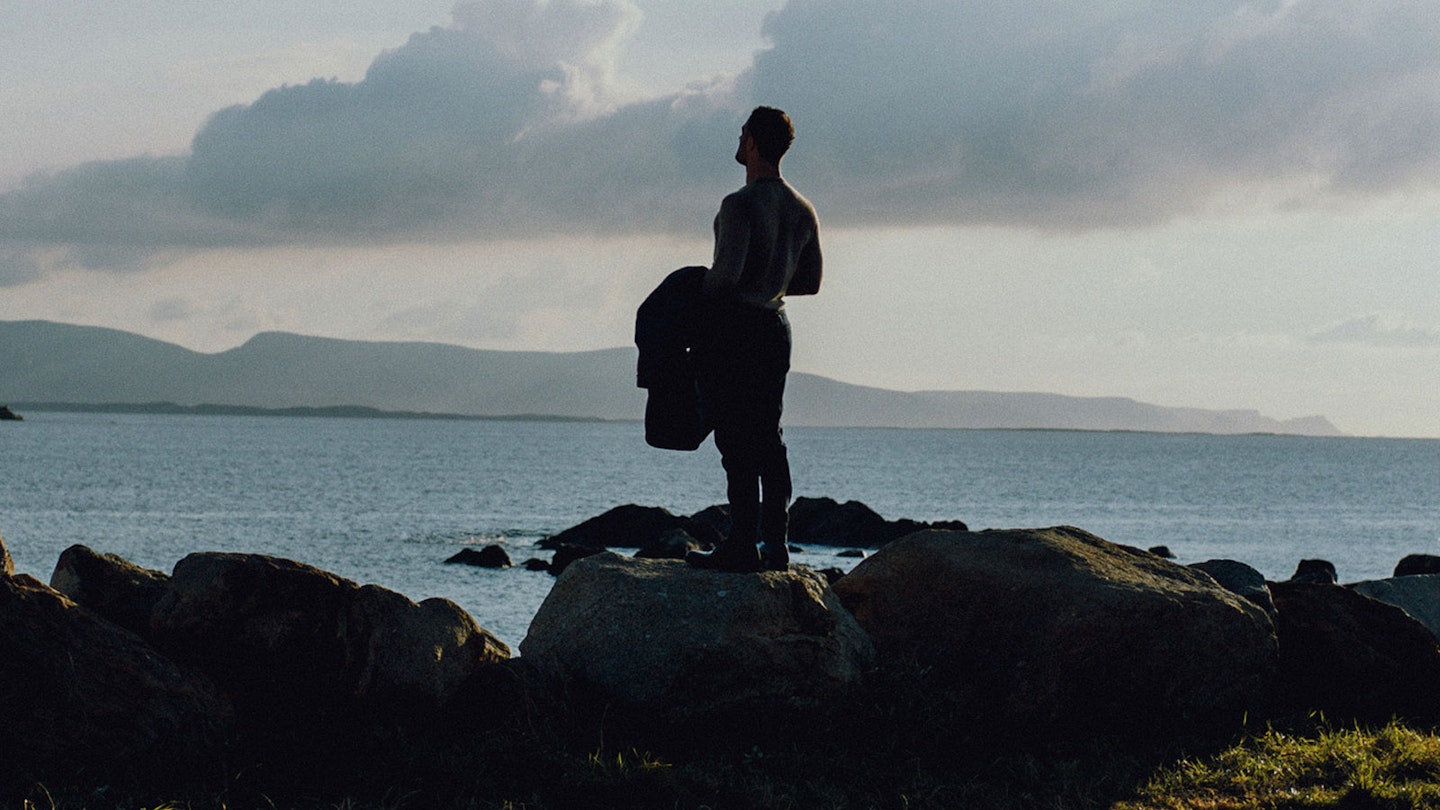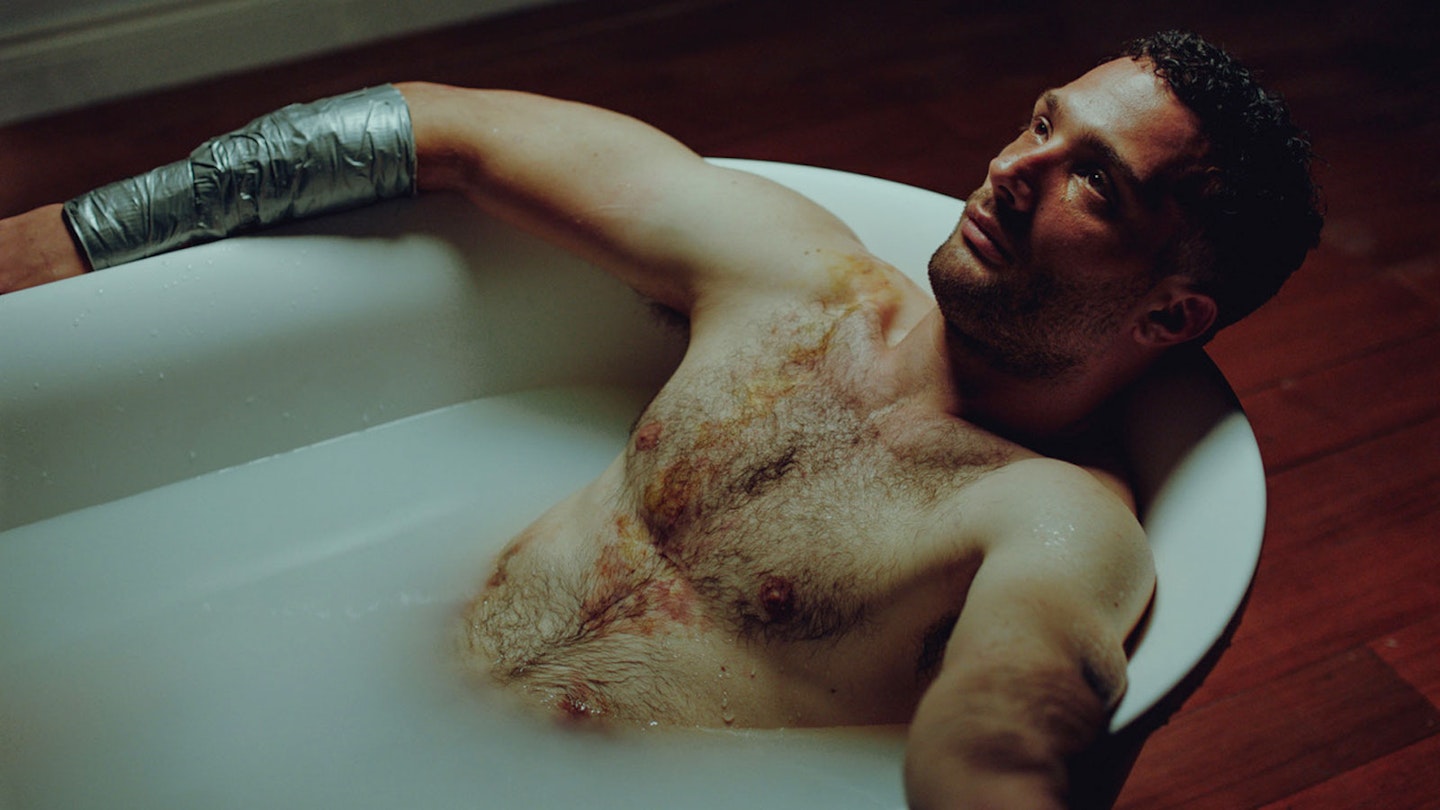After his powerhouse performance in Nick Rowland’s Calm With Horses, Cosmo Jarvis returns to the Emerald Isle in Cordelia star Antonia Campbell-Hughes’ feature directorial debut. He plays Hamish Considine, the intensely repressed son of wealthy, distant father Jack (Claes Bang), who travels to Donegal to deal with the house and other affairs left behind by an aunt that recently passed away. After a remarkably rude interaction with the woman providing him with his hire car, he hits the road – but before he can get where he’s going, he is caught up in a huge collision with another vehicle. He survives, but is heavily injured – the shock to his system seems to trigger a rebellion against his father’s domineering ways, and being in the place where his late mother lived encourages him to seek the truth about who she was.

Jarvis’ often wild, simmering on-screen energy is restrained here, but he’s still impactful. A broad, brawny presence, he is a classic fish-out-of-water, with his clipped vowels, fancy wool coats and impractical shoes forced onto the backdrop of endless Irish greenery and rural simplicity. Hamish is curiously uptight and abrasive, weirdly entitled but also unwilling to appear vulnerable – in one particularly gruesome sequence, he treats his own wounds, despite likely having more than enough resources to seek proper help.
Claes Bang is impressively cold and intimidating as patriarch Jack.
He forms an odd attachment to local lad Evan (Rhys Mannion), who was also involved in the collision. Their relationship dynamic shifts from adversarial, to co-dependent, to mentor-like, to strangely sexually charged from scene to scene, with the result being more frustrating than fascinating, and often extraneous-feeling. Claes Bang is impressively cold and intimidating as patriarch Jack despite only ever appearing on a laptop screen, doing his best to elevate some very clunky dialogue.
Though there are some interesting themes of self-destruction, small-town despair and an aching to understand where you come from being explored here, the script is vastly underdeveloped. But where the writing falls down, the visuals impress – the stark, still cinematography (vast, lush landscapes, Jarvis’ face half-lit by candlelight, an intense sequence of strobe lighting) is beautiful, and there’s no denying the sense of mood that Campbell-Hughes captures. It’s just not an atmosphere you want to be submerged in for very long.
